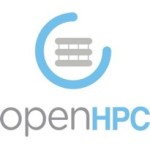In this video from ISC 2016, Figen Ulgen from Intel describes the new Intel HPC Orchestrator. “Intel HPC Orchestrator simplifies the installation, management and ongoing maintenance of a high-performance computing system by reducing the amount of integration and validation effort required for the HPC system software stack. Intel HPC Orchestrator can help accelerate your time to results and value in your HPC initiatives. With Intel HPC Orchestrator, based on the OpenHPC system software stack, you can take advantage of the innovation driven by the open source community – while also getting peace of mind from Intel support across the stack.”
Efforts to Broaden HPC Accelerate as OpenHPC Governing Board and Technical Steering Committee Takes Shape
Since its announcement at SC15 in November, the OpenHPC community has made important strides toward its mission of creating and supporting a flexible open source HPC software stack that simplifies deploying and managing HPC systems. In just a few short months, the open source community hosted at The Linux Foundation has had many productive working group discussions, installed a Technical Steering Committee (TSC) and Governing Board, and even provided releases of the initial software stack based on early community feedback. The initial software stack includes over 60 packages, including tools and libraries, as well as provisioning, a job scheduler and more.
OpenHPC Establishes Leadership & Releases Initial Software Stack
Today the Linux Foundation announced a set of technical, leadership and member investment milestones for OpenHPC, a Linux Foundation project to develop an open source framework for High Performance Computing environments. “The OpenHPC community has quickly paved a path of collaborative development that is highly inclusive of stakeholders invested in HPC-optimized software,” said Jim Zemlin, executive director, The Linux Foundation. “To see OpenHPC members include the world’s leading computing labs, universities, and hardware experts, illustrates how open source unites the world’s leading technologists to share technology investments that will shape the next 30+ years of computing.”
Marc Snir on Why Argonne is Part of the OpenHPC Community
Dr. Marc Snir discusses why Argonne is participating in the OpenHPC Community. “OpenHPC can be a good mechanism to make sure all the pieces of open source software in HPC fit well together. It’s an important initiative that can bring together the HPC open source software community. It can make sure that a full stack of HPC software is available in a useful manner to the user community.”
Peta-Exa-Zetta: Robert Wisniewski and the Growth of Compute Power
While much noise is being made about the race to exascale, building productive supercomputers really comes down to people and ingenuity. In this special guest feature, Donna Loveland profiles supercomputer architect Robert Wisniewski from Intel. “In combining the threading and memory challenges, there’s an increased need for the hardware to perform synchronization operations, especially intranode ones, efficiently. With more threads utilizing less memory with wider parallelism, it becomes important that they synchronize among themselves efficiently and have access to efficient atomic memory operations. Applications also need to be vectorized to take advantage of the wider FPUs on the chip. While much of the vectorization can be done by compilers, application developers can follow design patterns that aid the compiler’s task.”
An Open Letter to the HPC Community
Altair is making a big investment toward uniting the whole HPC community to accelerate the state of the art (and the state of actual production operations) for HPC scheduling. Altair is joining the OpenHPC project with PBS Pro. They are focused on longevity – creating a viable, sustainable community to focus on job scheduling software that can truly bridge the gap in the HPC world.
Jeff Squyres on Building Community at OpenHPC
“As a community, we are excited about enabling HPC for everyone. If OpenHPC can really make it so easy to install HPC systems that more people join the ecosystem – as users, system administrators, resource managers, or developers – we all win.”
Thomas Sterling Weighs in on the OpenHPC Community
Over at the OpenHPC Blog, Thomas Sterling from Indiana University describes why the Crest Project has joined the OpenHPC Community: “We want to make a specific contribution. By associating ourselves with an emergent framework, in which we could benefit from the work of many different people interested in different things but under a unifying guidance of scaffolding interfaces, we were able to achieve our objectives in low cost, HPC for end users. If, and I have to say if, OpenHPC does this right, you will provide that framework.”
Podcast: Strengthening High Performance Computing with OpenHPC
OpenHPC is a collaborative, community effort that initiated from a desire to aggregate a number of common ingredients required to deploy and manage High Performance Computing Linux clusters including provisioning tools, resource management, I/O clients, development tools, and a variety of scientific libraries.
Is HPC Heading Towards Openness, Chaos, or a Split?
“To be successful in high-performance computing (HPC) today, it is no longer enough to sell good hardware: vendors need to develop an ‘ecosystem’ in which other hardware companies use their products and components; in which system administrators are familiar with their processors and architectures; and in which developers are trained and eager to write code both for the efficient use of the system and for end-user applications. No one company, not even Intel or IBM, can achieve all of this by itself anymore.”











